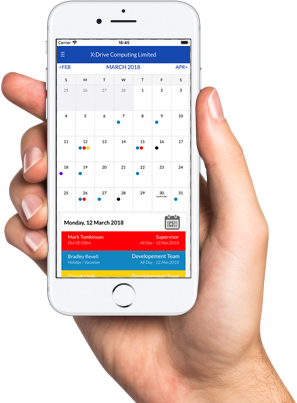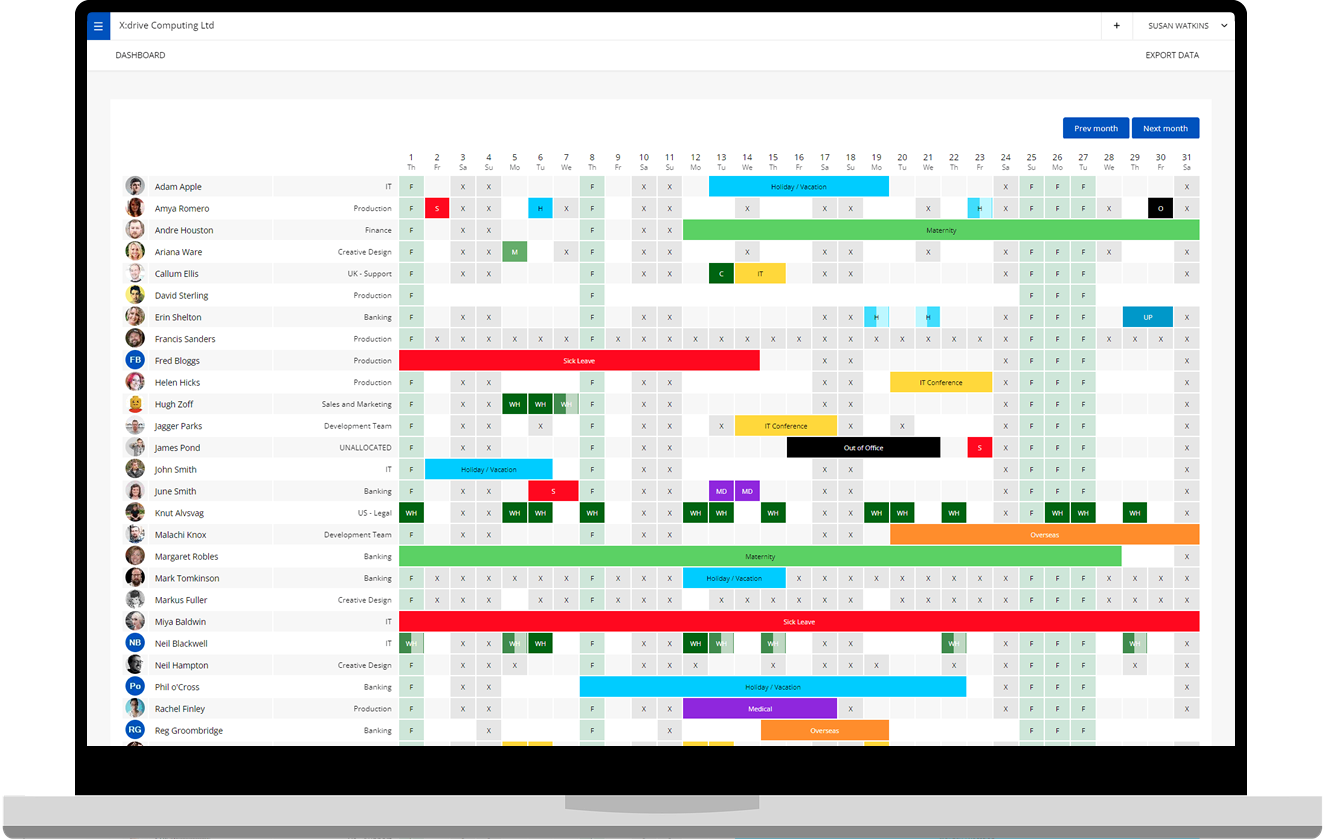Every year, around 40,000 people across the UK are selected to take part in jury service – so the chances are a member of your company will be called up at some point.
To help you respond in the most effective way, WhosOff has put together a quick guide to managing staff absences due to jury service commitments…

What is jury service?
In the UK, a person accused of a criminal offence has the right to be tried in front of their peers – this right dates back to the Magna Carta, signed in 1215.
Under the modern legal system, this ‘peer judgement’ takes the form of a jury; twelve people selected at random, who listen to the evidence presented by both sides, and determine whether a person is guilty or not guilty of the alleged crime in accordance with the law.
How do you get chosen for jury service?
Jurors’ names are chosen randomly from the UK electoral register, and they must meet certain eligibility criteria. For example, jurors need to be between the ages of 18 and 70, mentally stable, and have lived in the UK for at least five years since the age of 13.
There are other terms that disqualify someone from serving – solicitors and barristers cannot serve on a jury, for instance, and neither can people on bail for certain crimes.
Can your jury service dates be moved?
Any person summed for jury service needs to respond within seven days confirming they can attend, unless they have a valid reason for the date of service to be changed. Otherwise they could be found in contempt of court.
The reasons that jury service can be moved or postponed include:
- Sitting an exam during this period
- Pre-booked life events such as a holiday or wedding
- Having an operation (and other medical reasons)
- New parent
- Not permitted to take time off work
In all of these cases, the person summoned needs to provide three possible dates in the next twelve months when they would be able to complete their duty.
Can someone turn down jury service?
There are some exceptional circumstances when people can be excused from jury service altogether. These include suffering from a serious illness or disability, and caring full-time for someone with a serious illness or disability.
Also, someone who has already completed jury service within the last two years can ask to be excused – but they can also choose to serve again. Check out the government jury service guidelines for detailed information on all terms and conditions.
Do employers have to let staff take time off for jury service?
Provided your employees meet the legal criteria, they could be called up for jury service at any time, and they could be called up more than once.
Under the Juries Act 1974, employers cannot legally refuse to allow an employee time off work when they are summoned. However, as we mentioned above, you can ask them to move their jury service – but only if their absence from work would seriously impact your business.
For most employers, asking colleagues to postpone their jury service is just delaying the inevitable. So it’s easier to give them permission straight away.
If you refuse to let your employees participate, they could complain to an employment tribunal – and they have a right to claim unfair dismissal if they are sacked for taking time off to complete jury service.
Is jury service a form of paid leave?
As an employer, it’s up to you whether you offer your staff paid time off for jury service.
If you decide it should be taken as unpaid leave, employees can claim some money back from the government after their service is complete.
Jurors can claim up to £64.95 per day in court for loss of earnings and any additional care or childcare costs accrued as a result of doing jury service. They can also claim their travel expenses to and from court, and £5.71 per day to contribute towards the cost of food and drink.
If an employee is called up for jury service how long will they be off work?
Usually, jury service lasts up to 10 working days, and those participating will be required to be present at court from 10:00am – 5:30pm, Monday to Friday. However, the times and days can vary.
If a team member is sworn in for a serious or complex trial, this could continue for longer than 10 working days. If it’s likely to last longer than the standard period of jury service, it’s likely jurors will be notified from the outset. But it’s worth bearing this in mind, because you could end up losing a key member of staff for a significant period of time.
Can employees work while doing jury service?
Not everyone who gets called for jury service is assigned to a trial. Potential jurors must stay in the court waiting room until they are called up and ‘sworn in’ to become a jury panel member. Your employee may spend their entire 10 days in the waiting room before returning to work.
If your employee is in the waiting room, they are entitled to use their laptop during this time, so they could still keep up with remote tasks. However, you should plan as if they are selected for trial, meaning they’ll be unavailable during the working day.

How can I manage the impact of jury service on the rest of my staff?
The benefit of managing jury service compared to some types of time off (such as sickness and compassionate leave) is that you know it’s going to happen in advance, so you can make plans to cover workload.
If a team member has jury service booked in, it’s worth considering how you can mitigate pressure on their colleagues during this time. For example, making sure staff don’t book any big meetings that the person on jury service would usually attend, and stopping members of the same team from taking annual leave before their colleague returns.
Factoring-in planned absences such as jury service is much easier if you’re able to manage staff movements using an online holiday calendar.
Holiday planning software isn’t just an effective means of tracking annual leave; you can use it to coordinate any type of time off, so everyone in your business can see exactly who’s in the office and who is unavailable to work.
By increasing visibility over all forms of leave, employees at every level can make sensible decisions and assign tasks to the right people, so productivity doesn’t suffer while someone is off work. And your employees on leave know they have the time and space to complete their jury duty or other important commitments, without putting their colleagues under unnecessary pressure.
Try WhosOff for free to manage all types of company leave – including jury service - through one online system.

Photo by EKATERINA BOLOVTSOVA of Pexels.com

